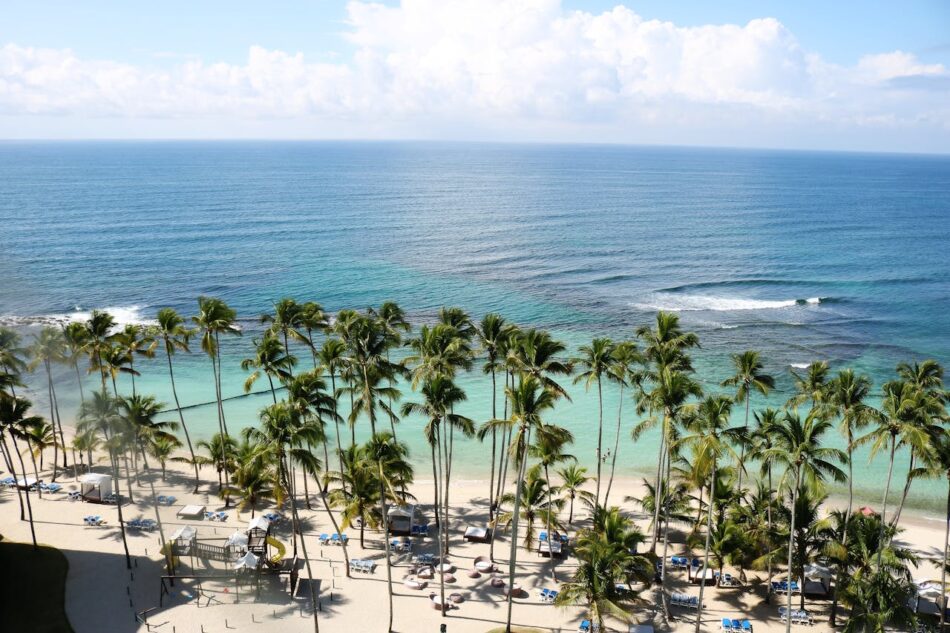Everything You Need to Know About Social Norms Before Moving to the Caribbean

People enjoying home dinner after learning social norms before moving to the Caribbean
Moving to the Caribbean can be an exciting adventure, but understanding the social norms is crucial to adapting smoothly. So, let’s see how we can help you prepare for the move and avoid the Carribean cultural shock. From manners and etiquette to dining customs, here’s what you need to know about social norms before moving to the Caribbean.
Understanding Caribbean Etiquette: Importance of Manners
In Caribbean culture, manners are highly valued. Politeness and respect are integral to daily interactions. For instance, greeting people with “good morning,” “good afternoon,” or “good evening” is common. In many Caribbean islands, it is customary to offer a warm smile along with your greeting, as this helps build rapport and demonstrates friendliness.
Titles and Addressing People
Relocating from a place with different social norms can be challenging. For example, it’s common in Canada and the USA to use first names regardless of age or status, which contrasts sharply with Caribbean customs. This is true even in a professional setting, as professionalmoverottawa.com can attest to this through their customer testimonials. So, observing and adapting to these differences is important to integrate smoothly into the community. Here in the Caribbean, it is not unusual for children to address adults with respect and formality, using titles and surnames rather than first names.
Furthermore, using titles like Mr., Mrs., and Miss is expected when addressing leaders, teachers, and professionals. Familiarity, such as using first names, comes only after a relationship has been established. This practice is still common, although many Caribbean people have adopted a more informal approach over time. As the relationship deepens, you might be invited to use their first name or even their nickname.

Get familiar with these social norms before moving to the Caribbean for easier adjustment.
Packing Essentials
When preparing for a move, especially if you are moving from Canada to the Caribbean, having the right packing supplies is crucial to ensure your belongings are safe and organized. Essential packing supplies include sturdy boxes of various sizes, bubble wrap, packing paper, and heavy-duty tape. Sturdy boxes are necessary to hold your items securely, while bubble wrap and packing paper provide cushioning to protect fragile items from damage. Ensure you get the best packing supplies from the movers.
Dress and Attire
Caribbean attire tends to be modest and conservative, especially away from tourist areas. For example, wearing swimwear outside of the beach is considered inappropriate in many islands. Always dress appropriately for the occasion and location to show respect for local customs. In the Bahamas, for instance, casual wear is fine around resorts and tourist attractions, but wearing swimwear outside the beach is seen as disrespectful. Because of this, don’t leave or donate all of your summer clothes, thinking you might not need them so often. Instead, make sure to get the best packing supplies and pack summer attires that you can wear in different social settings.
With this in mind, dressing smartly is expected in more formal settings, like dining or attending events. It’s best to maintain a neat and presentable appearance, even in casual settings. This reflects personal respect and social status. In the Dominican Republic, clothes are seen as indicators of social status, so dressing modestly and appearing well-groomed is essential, even in casual attire.
Dining Etiquette: Table Manners
Dining etiquette in the Caribbean can vary from informal to very formal, depending on the occasion. Generally, it’s polite to wait until invited to sit and begin eating. Using utensils and finishing everything on your plate is customary. Meals are often served buffet-style, especially during social gatherings, and it is considered polite to try a bit of everything to show appreciation to the host.
Social Dining
Meals are often served buffet-style, and it’s polite to try a bit of everything to show graciousness. If you’re unsure how to proceed, observe others and follow their lead because even this can differ. For example, in Jamaica, table manners are relatively informal, but the more formal the occasion, the stricter the protocol. Always wait for the host to invite you to start eating.
Tipping Culture in the Caribbean
Tipping practices can vary significantly across the Caribbean. In Jamaica, for instance, tipping isn’t traditionally part of local customs, and some venues and all-inclusive resorts even prohibit tipping. However, in tourist areas, tipping is more common. Restaurant tips typically range from 10% to 15%, but always check first if a service charge has already been added to your bill. In some destinations, discreetly tipping staff like taxi drivers or concierge staff is appreciated, but always be mindful of local customs and regulations.
In certain areas, staff might face consequences for accepting tips, so it’s crucial to tip discreetly if you choose to do so. Using U.S. dollars is generally accepted, making it convenient for tourists. Always ensure that tipping aligns with local customs to avoid any misunderstandings.

Make sure to tip discreetly!
Specific Island Etiquette
Jamaica
Jamaicans value direct communication but also appreciate tact and sensitivity. In Jamaica, it is common to address people by their honorific title and surname until a personal relationship has developed. Networking and building relationships are crucial for long-term success, and socializing is important in creating a personal connection. If you’re interested in learning more, check out our complete guide for moving to Jamaica.
The Bahamas
Casual wear is acceptable in tourist areas, but modesty is key. Swimwear should be reserved for the beach. Greetings and polite conversation are appreciated; using titles when addressing people is still common. Bahamians are known for their modest and conservative attire, so it’s important to dress respectfully.
Dominican Republic
Clothing often reflects social status. While designer brands are popular, dressing modestly and appearing well-groomed are more important. Beachwear should be limited to the beach, and dining etiquette tends to be more formal. In social settings, clothes are seen as an indication of accomplishment and success. If you’re unsure where to start, there are many essentials you should bring when moving to Dominica to avoid socially awkward situations.

Each part of the Caribbean has its own norms, so be open about new experiences and don’t stress over everything
Must-Know Social Norms Before Moving to the Caribbean
As you can see, understanding social norms is essential for adapting to life in the Caribbean. From polite greetings and proper attire to dining customs and tipping practices, these norms help foster respectful and harmonious relationships. Adopt these social norms before moving to the Caribbean for better adjustment.
IMAGES: All images are from pexels






1 COMMENTS